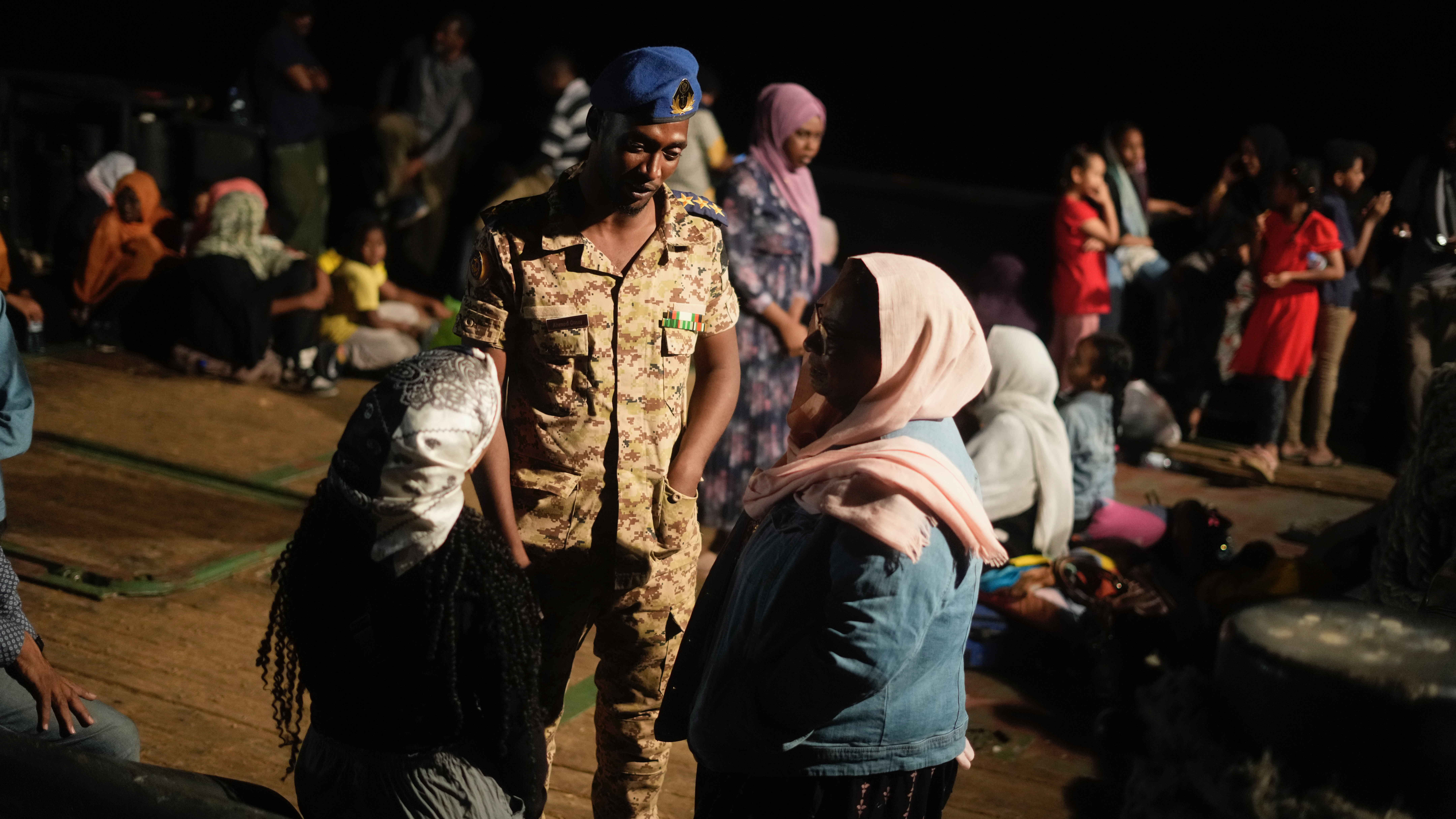Factory that made essential therapeutic food for malnourished children in Sudan burns down
The monthlong fighting in Sudan doesn’t seem to be relenting. The Sudanese Army and the militias of the Rapid Support Forces continue to face off in urban areas like Khartoum.
About 200,000 people have been forced to flee to nearby countries, and over 700,000 have been displaced inside Sudan, triggering a humanitarian crisis. Many more remain trapped in the country.
Amid this humanitarian crisis, a food factory was burned down last week, leaving many children at risk of starvation.
The Samil factory made life-saving products called RUTFs, which stands for ready-to-use therapeutic food.
RUTF was invented by a French scientist 25 years ago, and it is used to treat severely malnourished children under the age of 5.
“It is a bit of magic food because you do bring a child back from the brink of death,” explained James Elder, spokesperson for UNICEF. “It’s a dense energy paste. It’s full of micronutrients, peanuts and sugar, powdered milk, vitamins [and] oil. It’s got everything, it really does.”
UNICEF worked with the Samil factory in Khartoum to procure the RUTFs it needs to feed children in Sudan.
Elder said he doesn’t know who was behind the fire at the factory — whether it was a deliberate act or if it was just the consequence of the two sides fighting.
What is clear, though, is that 15,000 boxes of the food have been destroyed.
“The factory that produces 60% of this ready-to-use therapeutic food for Sudanese children [was] burned down, the production line, the machinery and all the ability to keep producing. So, it was yet another blow to children that are under attack from so many directions,” he said.
The UN estimates that 19 million people are at risk of starvation in Sudan.
Many have fled but for those who remain, venturing out to get food can cost them their lives. Banks have been closed down, and people are running out of cash.
Elder added that UNICEF is now trying to bring in the ready-to-use food from other countries. But the ongoing fighting makes deliveries challenging.
“This was already a cruel place for millions and millions of children. It just got that [much] more difficult,” he lamented.
The US ambassador to Sudan, John Godfrey, described the factory as the backbone of humanitarian child supplemental feeding programs in Sudan.
He said in a tweet that 3 million children in Sudan already suffered from hunger and malnourishment. This conflict has increased that number, he added.
The burning down of the Samil factory is part of a pattern of destruction of food supplies that makes life for residents so difficult, they decide to leave.
On Monday, aerial footage showed a large fire in the market in the Sudanese city of Omdurman, northwest of Khartoum.
In the early days of the war, The World Food Program said its warehouses were looted and that more than 13 million dollars worth of food was taken.
“We are looking at 25 to 30,000 refugees crossing the border [into Chad] in the last few days,” Eujin Byun of the United Nations Refugee Agency told The World in a WhatsApp message, adding that more than 90% of them are women and children.
Byun said her team has seen a lot of children crossing the border by themselves.
“We see a lot of orphans without relatives, without their parents crossing the border. It is indeed a children’s crisis.”
Elder of UNICEF said according to his organization’s tally, just in the first 11 days of the war, 190 children were killed. This is probably an undercount, he said, given the difficulties in confirming the deaths in a conflict zone.
Now, with the news about the only factory making food for severely malnourished children out of operation, fears are growing about the survival of millions of children.
Elder said timing is crucial in saving malnourished children, so supplies must arrive fast.
If that doesn’t happen, even if the children survive bombs and bullets, they could die of hunger.
